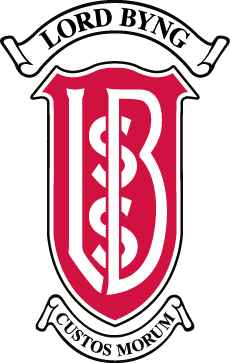English Language Learning (ELL)
Lord Byng ELL Department
Mr. Joe Ritchie is the principal in charge of ELL and Ms. Alina Cozma is the department head.
Information About Lord Byng's ELL Program
- Students are divided up into three groups: Level 1- beginners and lower intermediates; Level 2/3- upper intermediates and advance, and Level 4 transitional.
- All ELL students in Level 1 take ELL Science, ELL Socials Studies, ELL Literature, and ELL Writing, plus an additional four courses at students' grade level: Math, P.E. and 2 electives (Art, Music, Technical Studies, Home Economics, Computer Studies; or Drama). All elective courses listed above at the Gr 10 to 12 level will result in graduation credits upon completion and count towards the high school graduation Dogwood diploma issued by the BC Ministry of Education. Thus, all ELL students can earn credit for graduation as soon as they enter Lord Byng.
- Once a student is reading at approximately grade 3.5 reading level, he/she may be integrated into regular Science. For example, an ELL Science student in grade 8 will go into Science 8 within the school year. If he/she does not move within the school year, he/she must succeed in ELL Science in order to enter Science 9 next year.
- Once a student is able to read at a grade 5 or 6 level and receives a 2.5-3/6 on the ELL writing assessment , he/she will be consdiered for Transitional courses. If a student has strong reading and writing assessments, he/she will move to both Transitional Socials Studies and Transitional English; however, if a student is weak in assessments and/or in work/learning habits, he/she may not enter Transitional English until a later date.
- Students who enter Transitional English will also take an English support block called ELC, which is to help students strengthen their English skills to help them with entering regular English. Students who move but who cannot cope with the level of English required will move to a level which will enable him/her to learn.
- Students will enter English 8, 9 or 10 once he/she is either reading at grade level or will be considered for English once he/she is at least 2 grade levels below their grade level. For example, if a grade 8 ELL student enters Lord Byng reading at Grade 7, he/she will be integrated into English 8. ELL students who enter regular English will be given a support block, ELC.
- Depending on how the ELL student progresses in English, he/she may be required to continue in their current ELL program or he/she may enter a higher level. Students who are still weak in ELC may take ELC again the following year.
Movement from ELL into Regular
- Readiness to leave ELL: reading level is approximately grade 5; writing is a pass on cross-grade writing exams in Fall and Spring.
- Readiness to leave Transitional: reading level is closer to grade level, 3.5 or 4 out of 6 on cross-grade writing exam, strong pass on final grade 10 exam (for those at the senior level), and strong independent learning work habits. Students also need to be able to have academic discussions and/or give an oral presentations for an extended period of time.
- Students typically spend 2-3 years in ELL plus an additional 1-2 years at the Transitional level. It is not unusual for students who come in with very limited English to spend an additional 1-2 years in ELL. A new language takes students up to 7 years to attain fluency. Grade twelve students who do not have enough reading and writing ability to enter Social Studies or English Language Arts may opt to enter Adult Education in order to finish their high school credits and receive the Dogwood diploma from the Ministry of Education which will enable him/her to gain access to post-secondary colleges and universities.
- Every year, 2 Reading assessments are done: one in the first month of the school year and one in the Spring. The first reading assessment tests returning ELL students and gives new students an opportunity to prove their strength. These assessments are used for ELL placements.
- 2 Writing Assessment are done per year: Fall and Spring. These writing assessments are also used for ELL placements.
Interims and Report Cards
Anecdotal Reports (Chinese).pdf
Anecdotal Reports (Korean).pdf
- Interim Reports allow teachers to inform you and your son/ daughter about his/her work habits, absences, and lates. Warnings of students failing or receiving a bad grade are usually given at this time. Interims may be sent home every term. Teachers may also send extra interims at any time.
- While each student will receive grades and credit for their regular courses, most ESL courses are non-credit. Instead, parents and students will receive anecdotal and prescriptive feedback about their current reading, writing and oral abilities for their ELL, Transitional and ELC courses.
- There are also Parent-Teacher Interviews. Please come and meet all your ELL teachers as well as teachers in your child's other courses such as PE, Math, Planning 10, and electives.
How Parents Can Help
Here are 3 resources for parents that will help you help your child learn the English language
Fast Facts Parental Assumptions About Learning in a New Language.pdf
Ways to Support Reading in The Home.pdf

